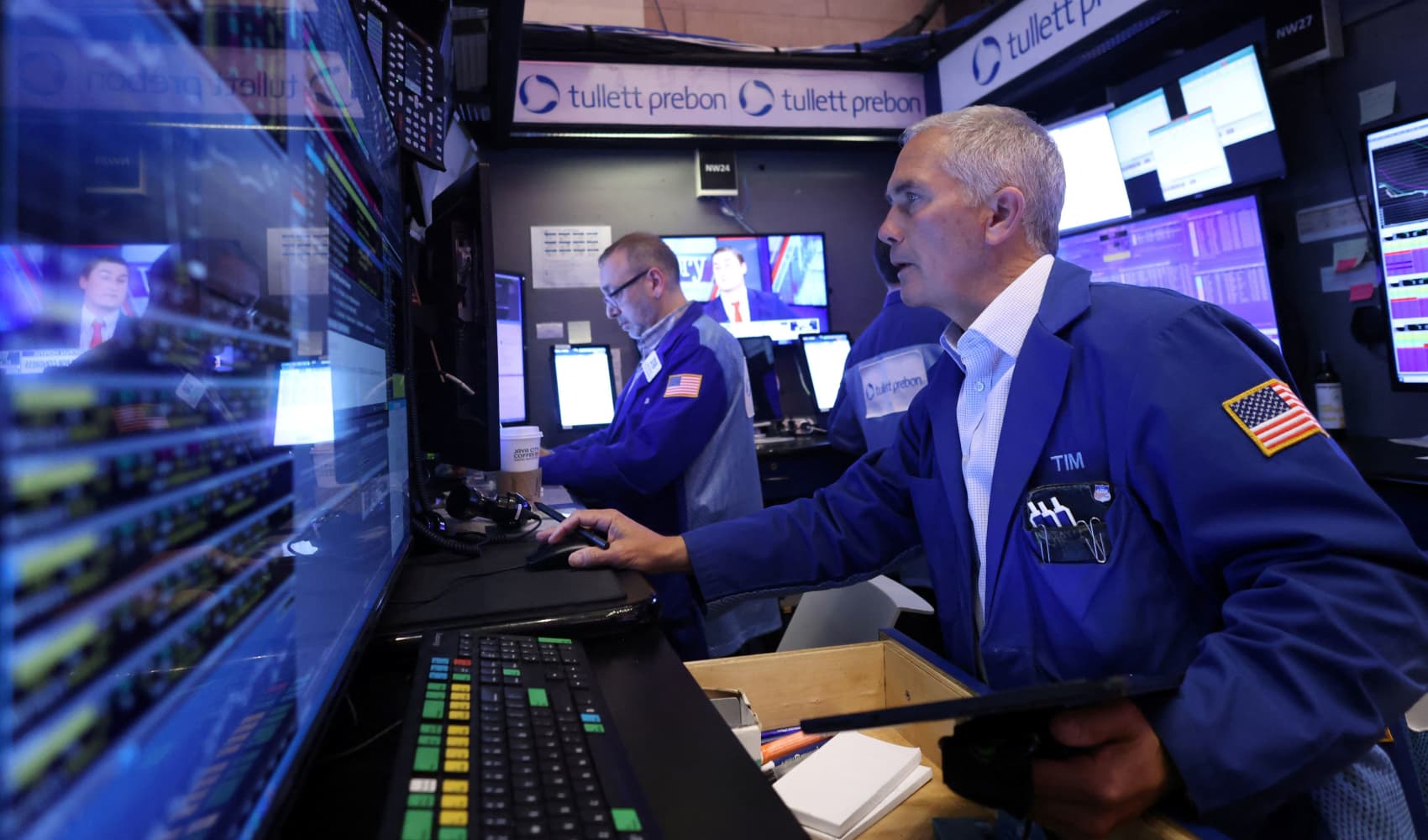
- OPEC+, which includes Russia, meets Thursday, and is expected to continue with its plan to gradually return oil to the market.
- The meeting comes as the European Union this week said it plans to ban most Russian oil and put new sanctions on tanker insurance.
- "The group is also trying to disassociate the politics from the economics. And the economics dictate that if prices keep rising, you're going to hurt demand pretty badly at this stage," said Francisco Blanch, head of commodities and derivative strategy at Bank of America.
OPEC+ is expected to stick to its current production agreement for now, but behind the scenes the oil-producing nations could be planning for the day when Russia's contribution to world oil supply could be far reduced.
The European Union's move to ban most Russian oil and put new sanctions on shipping insurance could seriously hamper Russia's ability to export crude. The EU leaders agreed this week to an embargo on oil and petroleum products, with a temporary exemption for some oil delivered by pipeline.
Get Southern California news, weather forecasts and entertainment stories to your inbox. Sign up for NBC LA newsletters.
"If they prohibit insurance on tankers carrying Russian oil, that will really aggravate the scramble for barrels, and certainly it's going to be a turbulent summer," said Daniel Yergin, vice chairman S&P Global. "If you don't have insurance, most reputable tankers aren't going to sail because the risks are enormous."
Most tanker insurance is written by London-based insurers. "Insurance doesn't get the same attention as barrels of oil, but insurance is significant," Yergin said.
That prospect of a larger loss of Russian oil from the market and the potential for sharply higher and volatile prices hangs over the members of OPEC, which have been asked by Western nations to supply more crude.
Money Report
Ultimately, the cartel could increase the amount of oil in the market, as Russian oil is reduced but that is not likely to be part of any OPEC communication Thursday.
"I think they're going to try to manage it elegantly with the Russians," said Helima Croft, head of global commodities strategy at RBC. "I do not think the OPEC leadership is looking to humiliate Russia right now. I think they're looking to thread the needle slowly. They are committed to the market and looking to get a reset with the United States."
Croft said with only four months left in their current agreement, OPEC+ is expected to return the expected 432,000 barrels a day to the market at Thursday's meeting.
She said even if OPEC were to change its agreement sooner, it's not clear how much relief would be provided, with spare capacity limited and no end in sight for the war in Ukraine.
The strategist said, however, there is potential for Saudi Arabia to "sunset" the agreement before the official date as part of a "grand bargain" with the U.S.
Relations between the kingdom and President Joe Biden's White House have been frayed. There is a chance Biden could visit the country and meet Saudi Crown Prince Mohammed bin Salman when the president visits Israel in late June.
"It has been our view since February that there is a deal to be had if Washington can satisfy the kingdom's core security and strategic concerns," Croft noted. "During our visits to the kingdom this year, officials there indicated they were looking for a new partnership agreement with the United States and that energy would be one part of this broader bilateral conversation."
Croft said one concern for Saudi Arabia had been U.S. talks toward a new nuclear agreement with Iran, but chances of a deal now look slim and that could help relations with Riyadh.
"We think there's momentum for increased Saudi production over the summer," Croft said. "There's been a lot of diplomatic movements behind the scenes."
The EU ban is to be phased in and cover two-thirds of Europe's imports from Russia. The ban could ultimately limit 90% of Russian imports, based on pledges from Germany and Poland to end imports from the northern part of the Druzhba pipeline.
By some estimates, previous sanctions have already affected about half of Russia's exports, and the wider sanctions could hamper them further, leaving world oil supplies very tight. Analysts say oil could retest March's high of $130.50 per barrel for West Texas Intermediate crude. WTI futures settled at $115.26 per barrel on Wednesday.
The EU decision to also block insurers from covering Russian oil shipments was unexpected by some market observers. That move would affect tankers that travel the world and could undermine Russia's efforts to sell its oil in Asia to countries including India and China.
"That combined with reopening in China just adds more pressure on supplies," Yergin said. "A combination of sanctions, no insurance and Chinese recovery means a very, very, very tight oil market and a scramble for supplies."
John Kilduff, a partner with Again Capital, said Russian oil may be curtailed from the market but not entirely removed.
"We're definitely in a tough spot right now, but the fact with all this news and we're still not back to the highs is telling," he said. "It's an art form circumventing sanctions, and Iran wrote the book on it. India and China will continue to be buyers. There will be ship-to-ship transfers in the dark of night. There's precious little you can do about it."
In part because of Russia's ability to export, oil prices may not rise any more than the March highs. China is also a wild card, Kilduff said, and its demand may not be as high as expected once it reopens its economy. Meanwhile, OPEC is also forecasting a supply surplus of 1.5 million barrels a day for the balance of the year, he added.
The Wall Street Journal reported that some OPEC members are exploring suspending Russia's involvement from the production agreement, as sanctions affect its ability to pump more oil. But analysts do not expect to see any signs of that at this week's meeting.
"I think the group is also trying to disassociate the politics from the economics. And the economics dictate that if prices keep rising, you're going to hurt demand pretty badly at this stage," said Francisco Blanch, head of commodities and derivative strategy at Bank of America. "We already had record diesel prices, record gasoline prices, and now we're waiting for record crude prices."
But Blanch said OPEC could ultimately have a new production plan in place that does not rely on Russian crude.
Saudi Arabia is the one country with spare capacity to produce and export more oil.
"What the group is looking at is how do you prevent a crude shortage that ultimately backfires on the group itself. I think they're thinking if we don't do something here, chances are it blows back on us," said Blanch. "The question is how does Russia react to that."
Analysts say there's a risk that prices could spike dramatically should Russia retaliate and cut off Europe sooner than it plans to ban Russian crude.
"The thing to watch is do we get Russian weaponization of exports," said Croft. That could create a scenario where oil could spike, even reaching some forecasts of $185 per barrel.
As one of the world's top three producers, Russia was exporting about 5 million barrels a day of crude and another 2.5 million barrels of refined products before the war in Ukraine. OPEC can't cover all those losses.
When Iranian oil was sanctioned, Saudi Arabia was able to make up for the lost barrels, Blanch said. "I think the point was that back then, the Saudis were a lot more engaged in the process," he said. With Russia a leading player in the OPEC+ partnership, "it's a much more sensitive topic."
Kilduff said there may be more behind-the-scenes tensions this week between some OPEC members and Russia than are expected.
Saudi Arabia and Russia are likely to keep close ties even if the U.S. relationship with the kingdom improves, but other members may be more interested in ending Russia's role sooner, he said.
"The knives are going to be out for Russia from some of the members of OPEC+ for sure. This has all the elements of a Greek tragedy," said Kilduff.






